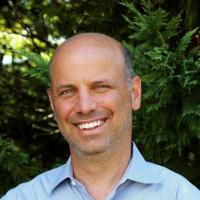
The Environment and Energy concentration prepares students to evaluate, implement and influence environment and energy policy.
Careers
You can prepare for a career in environmental and energy law, regulation, policymaking, research, consulting, and advocacy. With electives, you can either develop deep expertise in a sector like climate change mitigation, or gain a broad perspective on contemporary environment and energy topics.
Focus
This concentration is for those engaged in environmental stewardship or energy development interested in careers in local, state and national governments, including regulatory agencies and legislative offices, environmental non-profits and non-governmental organizations, water and energy utilities, consultancies and research organizations, and private firms.
Electives
With unparalleled access to elective courses in environment and energy law, policy, politics and economics, you can seize growing career opportunities related to resource conservation, air and water pollution control, climate change mitigation and clean energy innovation.
Students Can
From evaluating policies to conserving natural habitat in the Amazon, promoting diffusion of solar photovoltaics in the U.S., providing clean energy and water technologies in Central and South Asia to delivering renewable energy in Sub-Saharan Africa, Sanford’s many environment and energy policy experts are generating research to inform pressing policy challenges.
Faculty are recognized for their expertise around the world, advising the White House, the U.S Environmental Protection Agency, the World Bank, the InterAmerican Development Bank, state governments, and policymakers. They have contributed to National Academy of Sciences reports, Intergovernmental Panel on Climate Change assessments, the Global Assessment Report on Biodiversity and Ecosystem Services and the Lancet-Rockefeller Commission on Planetary Health.
Options include Climate Change Economics and Policy; International Environmental Policy; Collective Action; Sustainable Development; Environment & Development; Energy & Development; Global Environmental Health. Students are afforded flexibility in formulating curricula that takes advantage of broad expertise. Duke’s unparalleled campus-wide commitment to solving environmental and energy problems is leveraged by students with diverse interests in these policy domains.

Duke’s Nicholas School is home to experts across 45 environmental sectors, from atmospheric sciences, to forests and urban environment. Enroll in Duke Environment courses, gain knowledge in research laboratories, and immerse yourself in co-curricular activities that take advantage of North Carolina’s vibrant and diverse landscape.
Nicholas Institute experts operate at the intersection of academia and the policy world, informing design of carbon market programs around the world, engaging utilities, regulators, and environmental groups in planning the electric grid of the future, and leading the world in development of ecosystem accounts that more fully reflect the wellbeing and sustainability of our communities. Gain unprecedented insights into environmental policymaking and access to the leaders making environmental policy improvements.
The initiative is dedicated to advancing a safe, affordable, reliable, and sustainable energy future by training tomorrow’s energy leaders and fostering new energy discoveries.
Knowledge and Skills You Can Acquire
- Statistical tools to test hypotheses and to evaluate policies and programs
- Analytic tools to investigate the efficiency and equity implications of environmental programs and energy regulations and conduct welfare analyses
- Decision-making under uncertainty
- Methods to determine the value of non-market environmental resources (like clean air)
- Policy expertise and research experience specific to the research interests of a client in the energy and environment space.
Policy Concentration Advisor

Timothy H Profeta
Associate Professor of the Practice in the Sanford School of Public Policy
Tim Profeta is the founding director of the Nicholas Institute for Environmental Policy Solutions. Since 2005, the institute has grown into a major nonpartisan player in key environmental debates, serving both the public and private sectors with sound understanding of complex environmental issues.
Prior to his arrival at Duke, Profeta served as counsel for the environment to Sen. Joseph Lieberman (D-CT). As Lieberman’s counsel, he was a principal architect of the Lieberman-McCain Climate Stewardship Act of 2003. He also represented Lieberman in legislative negotiations pertaining to environmental and energy issues, as well as coordinated the senator’s energy and environmental portfolio during his runs for national office.
Profeta has continued to use his experience on Capitol Hill to engage in the most pertinent debates surrounding climate change. Since 2005, his work has included the development of proposals with four senate offices to contain costs while maintaining environmental integrity under a cap-and-trade program.
Profeta has served as visiting lecturer at Duke Law School, where he taught a weekly seminar on the evolution of environmental law and the Endangered Species Act. He has also co-taught a course on Corporate Sustainability and Climate Change with the Duke Executive Education Program. Profeta earned a law degree from Duke and an undergraduate degree from Yale University.
